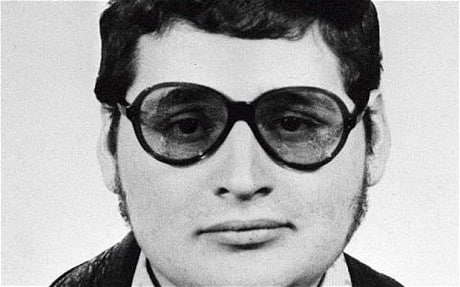
He was once the world’s most wanted fugitive. In his heyday, Ilich Ramierz Sanchez, dubbed “Carlos the Jackal,” was the most prominent political terrorist of his time and the center of a worldwide manhunt that captured the world’s attention. But on Tuesday, a French court convicted the man to life in prison – for the third time.
Tuesday’s verdict may quietly close this last chapter in a bizarre story that won Carlos international infamy. The Venezuelan-born militant joined the ranks of the Popular Front for the Liberation of Palestine, a militant revolutionary group, at the age of 24. After joining, he carried out a spate of deadly attacks in the 1970s and ’80s, all in the name of communist and Palestinian causes.
“Terrorists weren’t even known then,” said Billy Waugh, a former CIA operative who helped track him. “Carlos was the man,” he told the BBC in 2014.
Carlos evaded police for decades, but French intelligence services finally captured him in Khartoum, Sudan, in 1994. They extradited him to France, where he’s been imprisoned ever since.
The latest trial centered on his 1974 grenade attack on a Paris shopping area that killed two and wounded 34. When the trial began in March, he claimed any killings he carried out were in the name of the “revolution.”
“No-one has executed more people than me in the Palestinian resistance … (and) I am the only survivor,” Carlos said. “In all the fighting, there were collateral victims, it’s unfortunate.” He once bragged to a Venezuelan newspaper he killed 2,000 people in over 100 attacks.
The Marxist revolutionary was already sentenced to two life prison sentences – one for killing two French police officers in 1975 and another for orchestrating attacks on Parisian streets and train stations in 1982 and 1983 that killed 11 and wounded 150. In one of his most famous attacks, Carlos and five other militants stormed a meeting of the Organization of Petroleum Exporting Countries meeting in Austria in 1975, killing three and taking 60 hostages, before escaping with hostages in tow to Algeria.
The latest case took more than 20 years to go to trial. It was initially dismissed after his capture in 1994 due to lack of evidence. Then when prosecutors brought the case forward again, Carlos’ lawyers challenged each step at every turn, dragging the procedure on for decades, and in turn arguing the case extended beyond the normal statute of limitations. When he took the stand this month he denounced the case as “an absurd trial” some four decades after the crime.
But the five-judge panel who delivered the verdict wasn’t swayed and gave him a third life sentence. (A life sentence is the harshest verdict that can be doled out in France.)
For families of the victims, it was a far overdue judgment. “Today we are extremely relieved,” said Georges Holleaux, the lawyer representing the two dead victims’ families. “Today’s verdict is proof that there is nowhere, never, impunity if one is ready to fight. Let perpetrators of terrorist crimes know it: Now the victims will never give up,” Holleaux said.
French authorities aren’t investigating Carlos for any other crimes, so this is likely the last case against him. The story may not be over yet, though. Carlos’s lawyers vowed to appeal Tuesday’s decision.
“The media truth has permeated the judicial truth. The magistrates didn’t dare acquit Carlos,” Francis Vuillemin, one of his lawyers, said. “Let’s meet again in one year, for the appeal trial and for a new performance in this justice drama.”
(c) 2017, Foreign Policy · Robbie Gramer

